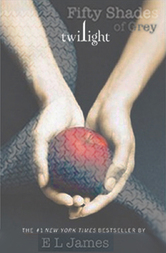|
by Kevin Coopersmith
It’s a hard truth to realize, but that doesn’t make it any less real – America is reading, they’re just not reading anything of substance. As a matter of fact, the average American spends most of their day reading – 11 hours a day on average with digital media alone, according to a Nielsen study conducted last year. That’s 11 hours of channel surfing, Facebook walls, Twitter feeds, refreshed Reddit pages, and underwhelming Buzzfeed articles. The ability to read is there – it’s not like our society is moving towards illiteracy. We’re just simply moving towards indifference – a point where words can be slung together to trigger passing emotions or satisfy desires, rather than to inspire. We are losing touch with ourselves – with quiet introspective evenings, with mindful conversations and meaningful time spent with loved ones. Instant gratification is king. We spend our social time staring at our iPhones with vacant eyes. So when it does come time for someone to read an actual book, why would they not opt for something that is as quickly satisfying and simple as the digital world around them? Why would the average modern day reader want anything less than something that can offer them quick payoffs, short thought processes, and trend worthy conversation fodder? It’s hard to accuse authors such Stephenie Meyer and E. L. James for warping or altering the face of modern literature. After all, they have simply done what every single successful businessperson has done since the dawn of time – given the public what they wanted.
From one lover of reading to another, I can imagine plenty of objections that statement would breed. Chiefly of which is the claim that as authors, they have a moral obligation to maintain a certain level of literature integrity and quality. But to make that statement also requires a close examination of what defines quality literature in 2014 America. The Digital Age has changed everything in writing and publishing – from the way works are composed to the way they are consumed. Through it all, literature has become as equally accessible and undesirable as it is now. The morals and obligations of what provided a standard in literature even ten years ago are different than what we observe today. In the midst of these changes, a paradigm shift exists. The craft of storytelling is fluctuating. Aspiring authors have begun telling their narratives via Twitter feeds or easier-to-digest Kindle Singles. Well-known authors have begun shifting toward writing screenplays and television pilots to reach a larger audience. Someone with zero literary talent can shove advertisements for their eBook-exclusive published work down your throat as long as they have the money to do so. And through it all, some of the greatest works of this generation collect dust at struggling bookstores or as unfinished manuscripts. It’s hard to deny that change is in the air. A transformation in literature is undergoing – the likes of which that hasn’t been seen since the invention of the printing press. But the question is, will it be an evolution or devolution? Will the entire craft soon shift to cater to satisfying the masses with quick payoffs and fat paychecks for the author? Or will literature do what it has always done, and adapt to the world around it? Hugh Howey turned his science fiction saga Wool into an immense success by offering the story in five easier to consume digital installments. Colleen Hoover released two self-published works within five months of each other to great success. The path is open for writers to have their work read and loved, it is simply a path that crosses through uncharted territory – filled with twists, turns and unique marketing plans. The most successful stories of our generation will be ones that, for better are worse, are unlike anything seen before. Whether they are all shallow, quick emotional fixes or well-crafted stories which creatively transcend the medium to connect with an unexpectedly large reader base depends on the literary community as a whole. Through all the complexity, the challenge to book readers who are fed up with the current state of the New York Times Bestseller List is to strive to steer the dialogue into a different direction. Pursue more obscure, contemporary reads – up and coming Kindle Direct Publishing pieces, or stories published by local indie presses, or the self-published tome by the weird guy who works in your IT department. Rather than hiding away in old Charles Dickinson novels, reminiscing over the lost days of “quality writing,” engage your reading time in the present – and in turn, the future. What you find may surprise you - and when it does, be the one to start the discussion. Recommend it to your friends, shove it down their throats the same way they did with Twilight and 50 Shades of Grey. Every successful book reaches its potential thanks to the individual readers who just loved it enough to force someone else to read it, and so on. By taking an active role in that process, you as readers have a unique opportunity to steer the direction of literature going forward. Similarly, a very clear challenge exists to today’s aspiring writers. To get your book read, do what’s never been done before in a way no one else would think of. Whether it’s through offering genre-redefining works or steamy S&M excess, there are plenty of creative paths that remain uncovered. As writers, our challenge now is to find them – to explore the creatively unexplored and come back with works that both appease the demands of society yet aspire to a transcendence of that. To produce literature that fits the requirements of being fresh, easily accessible, and of a distinct level of quality. By doing so, we can offer our potential readers something that will challenge them to put down their iPhones and reflect. And if that near-impossible feat can be accomplished, then I’m sure they’re going to want to talk to their friends about it.
1 Comment
William Brockett
2/18/2015 04:00:11 am
It's true! I see glassy-eyed tweens with their faces buried in their iPads and iPhones every day. They look around to show their friends how cultured and intellectual they are from reading at every conspicuous opportunity, but the fact is that Twilight, Fifty Shades of Grey, and even The Hunger Games are the same kind of junk novels that bored housewives would read back in the 80s. (I place The Hunger Games on that list reluctantly, only because it’s not a bad story, but it’s still just a re-mixed plot from Koushun Takami’s Battle Royale.)
Reply
Leave a Reply. |
Archives
April 2024
Categories
All
|
|
Glassworks is a publication of Rowan University's Master of Arts in Writing 260 Victoria Street • Glassboro, New Jersey 08028 glassworksmagazine@rowan.edu |
All Content on this Site (c) 2024 Glassworks
|



 RSS Feed
RSS Feed
